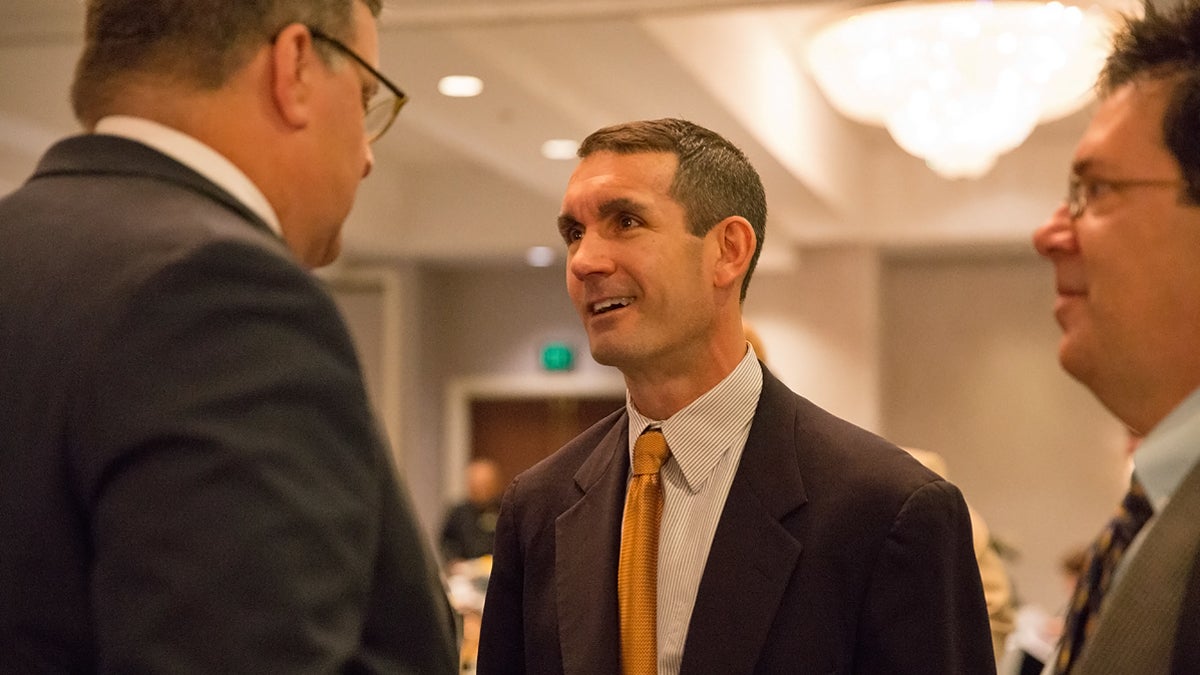Auditor general to cities: We have a problem in Pennsylvania, folks

Pennsylvania Auditor General Eugene DePasquale kicked off the conference speaking about funding municipal pensions
You guessed it: pensions.
At Keystone Crossroads‘ inaugural Urban Ideas Worth Stealing conference, civic leaders shared some of the innovative projects cities have taken on in recent years.
Jeffrey Parks, founder of SteelStacks, told the story of reimagining the defunct Bethlehem Steel site into the Lehigh Valley’s premiere arts and music venue.
Craig Peiffer, streets planner in Reading, spoke about key partnerships to form the city’s complete streets policy, which takes into consideration drivers, cyclists, pedestrians, and public transit users.
And Pennsylvania Auditor General Eugene DePasquale talked about municipal pensions.
To DePasquale, the projects that are trendy and make cities exciting places to live — think downtown festivals or even a giant slip n’ slide — are all nice trimmings. But, he says, the core factors — the meat, if you will — that maintain and grow a city are financial stability and a healthy education system.
“If people don’t feel safe, or the taxes are too high, or the education system isn’t good enough, or perceived to be good enough, you will not maintain middle class residents. And thus, your city will suffer.”
Where’s the beef?
Pennsylvania is about $8 billion short when it comes to municipal pension funds. With that amount of debt, paying for basic city services like fixing roads and police officers’ salaries becomes a hardship.
In his kickoff address, DePasquale used Pittsburgh as a prime example of how cities aren’t keeping up with their pension burdens.
He said despite contributing more than is required by law, Pittsburgh fell further behind in its unfunded pension liability.
“Because of demographic shifts, the city of Pittsburgh has 1.5 retirees for every active police and firefighter,” said DePasquale. “There’s nothing they can do.”
DePasquale admitted there’s no easy solution to fixing Pennsylvania’s unfunded municipal pension liability. But he pointed to Harrisburg’s long-term strategy of adding two of it’s pension plans into the larger state system that manages municipal pension funds.
The Pennsylvania Municipal Retirement System eliminates collective bargaining, lowers fee structures and offers more predictable and conservative rates of return, said DePasquale.
But PMRS also typically excludes pension plans for police and firefighters.
A member from the audience pushed DePasquale on another potential solution. He asked why not consider transferring public employees from a defined benefit pension plan to a defined contribution pension plan.
DePasquale’s response: “To be blunt, we’re trying to find something that could pass.”
Watch the auditor general’s full remarks in the video above.
WHYY is your source for fact-based, in-depth journalism and information. As a nonprofit organization, we rely on financial support from readers like you. Please give today.



